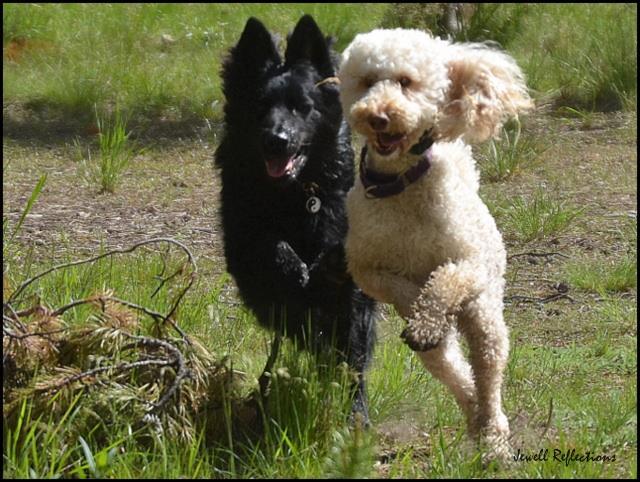
By Fran Jewell
A dog is not just a dog. Dogs were domesticated by selecting wolves that were the most able to work with and enjoy the company of humans. Once the wolves were brought into the human domain, man then started taking certain characteristics of the wolves and began to use those characteristics to help man.
Dogs were not just companions. They were carefully developed as working companions to help with everyday chores man had. This was when different breeds were developed. The wolves were not domesticated just for love. Each breed had a job they did. When you watch the AKC dog shows, such as Westminster, you will see the different “Groups.” There are seven different “groups” of dog, according to what they were bred to do. They are: Herding, Sporting, Working, Terriers, Toys, Non-Sporting, and Hounds. Each group has certain jobs.
When you choose a dog, knowing what your dog was bred for can help you in determining the best dog for you and your family. Not all dogs are created equal. As an example, a dog from the herding group will have a tendency to stay closer and keep your family together when you go for walks. They are also more likely to nip or bite things that move.
A dog from the working group may be more protective of you, your home, and your livestock, if you have any. Many are not known for being social with other dogs. Their mission is WORK.
What is difficult for many people to understand is that even if you have a mixed-breed dog, it does not mean that the dog will inherit the traits equally from each breed. If a dog is a mix of many breeds, the instincts may not blend equally. That means that if you have a half-border collie and half-Labrador retriever, or the ever-popular half-Labrador and half-poodle, you may not see the traits you are hoping for. The border collie/Labrador may not be as mellow as many Labradors are, but may inherit a lot of the herding traits and some suspicion. Many times, border collies can be suspicious. The friendliness of the Labrador may not be the dominant personality trait.
When we take any dog into our homes, we must consider the breed or breeds carefully to know if we have a match for our lifestyle and personality. Looking at a dog for its cuteness might not be a good reason to adopt or buy a particular dog.
Dogs are like shoes. Yes, shoes. There are hiking boots, rock-climbing shoes, snow boots, river shoes, school shoes, dinner-party shoes, and so on. You would not choose a snow boot to wear on a river trip. Once you decide on the breed characteristics that fit for you and your personality, then you have to decide on the size. Picking a river shoe three sizes too small will be very uncomfortable for the rest of your life and you probably won’t wear it. Forcing your foot into that shoe is like forcing some working breeds to be social with every dog they see if that is what you want. It’s not fair to your foot or your dog!!! We need to honor a dog for who he is.
The key to successful dog ownership is always to choose a dog with your head and your heart, not JUST your heart. I might like those darned river shoes, but if I intend on wearing them in the winter, I am going to be very sorry. Take your time. Explore breeds you are interested in. If you don’t know the breed of a dog you like, have a DNA test done so you do know what you are committing to for the next 12 to 15 years. Never feel pressured into taking a dog. If you go to a good breeder, they will help you decide if that breed is a good fit for you. Be selective so you know your new dog will be a good fit, not like trying to put a round dog into a square hole.
Fran Jewell is an IAABC Certified Dog Behavior Consultant, NADOI Certified Instructor and the owner of Positive Puppy Dog Training, LLC in Sun Valley. For more information, visit positivepuppy.com or call 208-578-1565.
